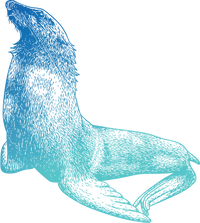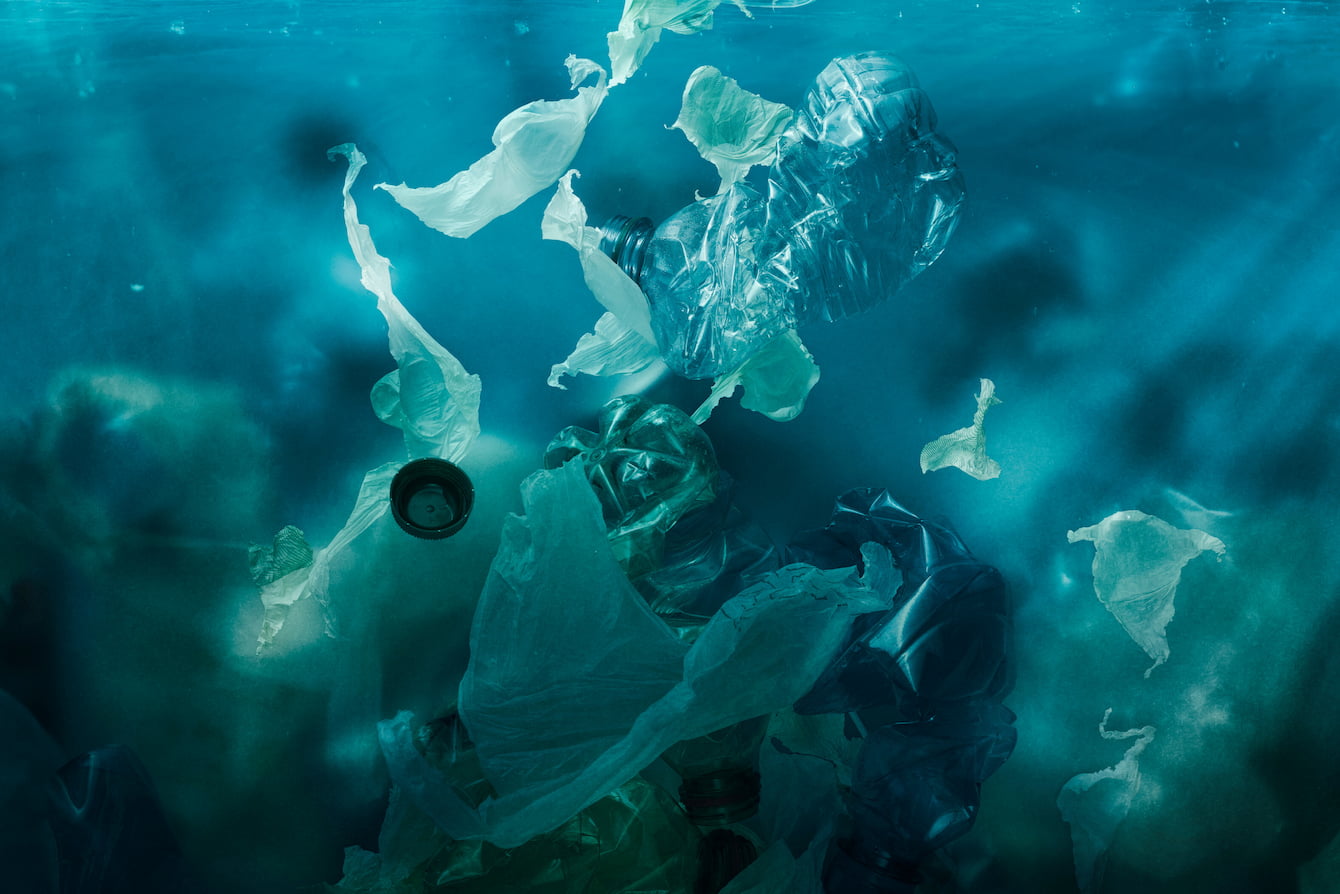
Plastic pollution: A global threat
From packaging to microplastics, plastic pollution is accumulating on the seafloor and along our shorelines, putting marine wildlife at risk. The Seattle Aquarium is working to advance policies that will reduce single-use plastics at the source, transform the recycling system and build a circular economy.
Microplastics have been detected in the deepest waters and the highest mountains, in freshly fallen Antarctic snow and the sands of Dubai. At less than 5 millimeters wide, these tiny plastic pieces are also found in humans—even babies.
As scientists investigate plastic’s impact on human and animal life, we continue to press for government action.
How you can fight plastic pollution
Everyone can make individual choices right now to reduce our reliance on plastics and keep them from ending up in the ocean.
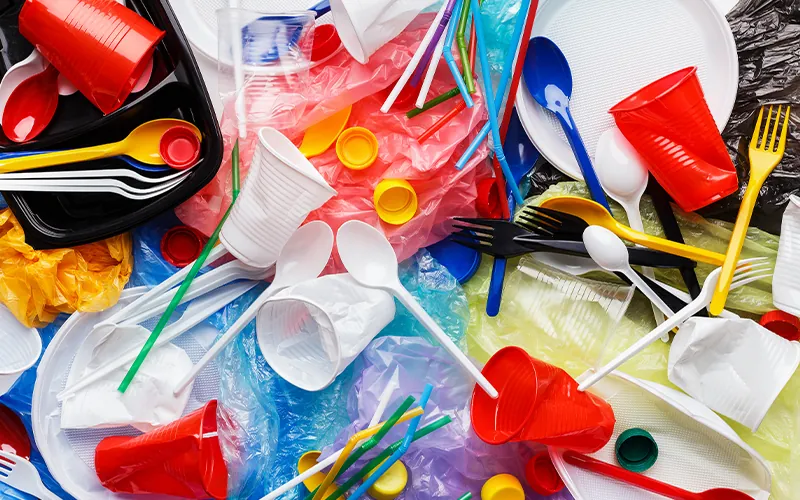
Reduce plastic use. Most plastics are made from petroleum products. Greenhouse gases are associated with every step in their manufacturing process.
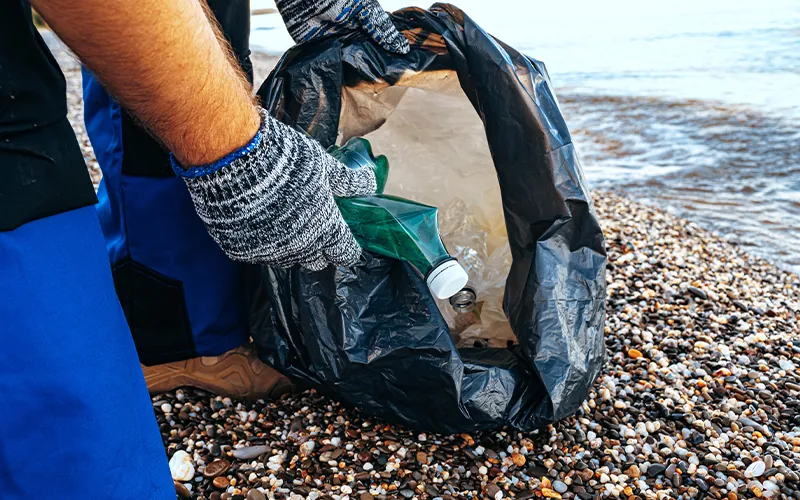
Pick up litter on a local beach. Better yet, organize a group of friends or family members to join a local beach cleanup!
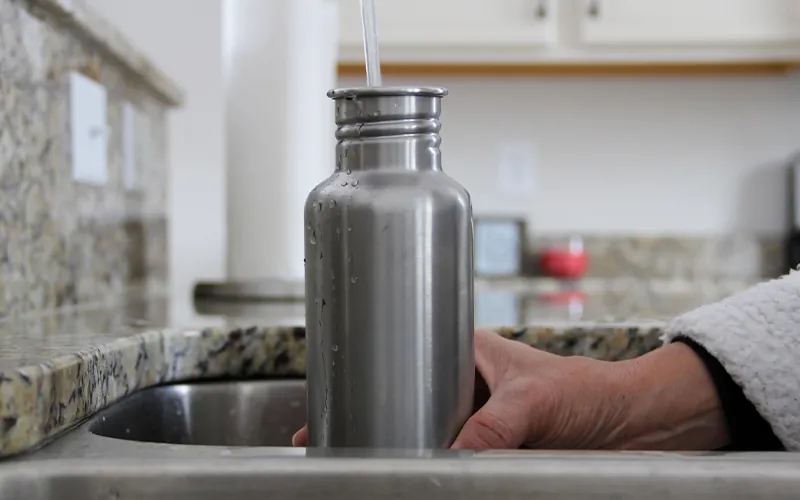
Switch to reusable dishes and utensils. Bring your own reusable mug or bottle when you get coffee or water. Skip the plastic utensils and straws when you get takeout food.
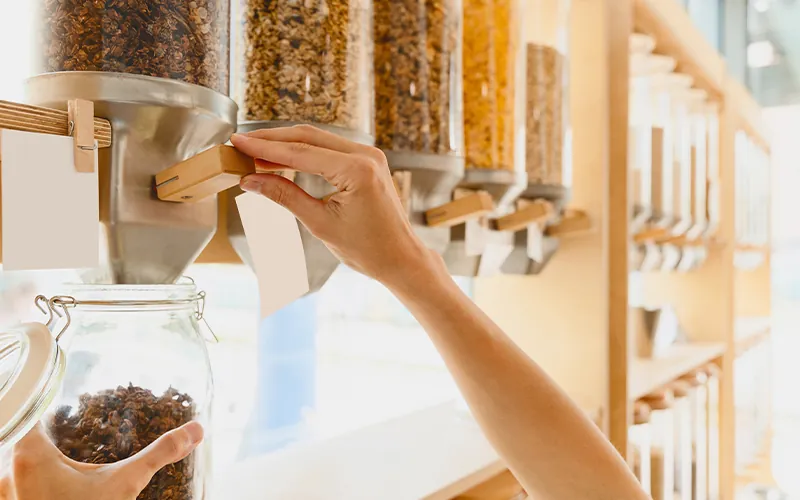
Choose products with less packaging. Pay attention to how much plastic comes with what you buy. Your candy, headphones, pens and more come in plastic packaging. Strive to cut down on your daily plastic consumption, buy used instead of new whenever possible and reward corporations that package responsibly!
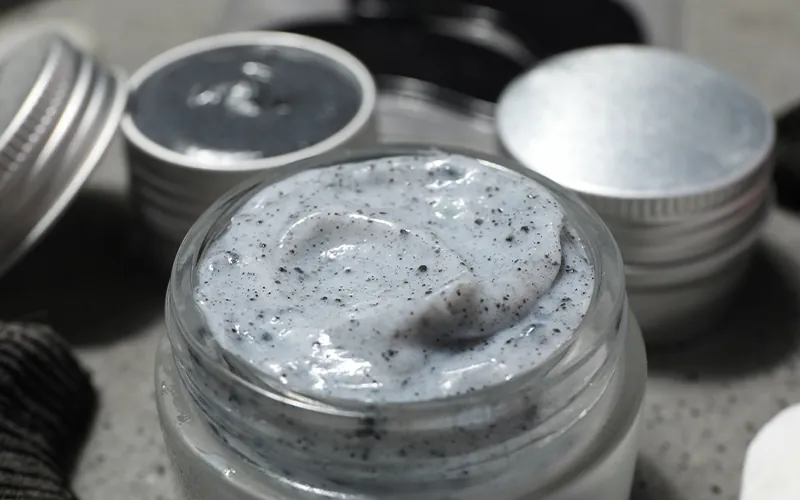
Avoid microbeads. Plastic microbeads are used for exfoliation or abrasion in personal care and cleaning products. Rinsed off, they end up in the ocean. Look for their chemical names on the label: polyethylene (PE), polyethylene terephthalate (PET), nylon (PA), polypropylene (PP) or polymethyl methacrylate (PMMA).
Seattle Aquarium advocacy
In 2023, we worked with our partners in the Plastic Free Washington Coalition to pass HB 1085 in Washington state, which will reduce three sources of unnecessary plastic waste: single-use water bottles, mini hotel toiletries and plastic foam-filled docks and floats.
We are advocating for lasting solutions to plastic pollution, including the federal Break Free from Plastic Pollution Act, Plastic Pellet Free Waters Act and Reducing Waste in National Parks Act. We also push for producer responsibility legislation in Washington state.
In 2021, we worked with our partners to pass SB 5022 in Washington state. That law banned certain expanded polystyrene foam products, like recreational coolers and packing peanuts. It required manufacturers of things like plastic beverage bottles, trash bags, laundry detergent packaging and shampoo containers to use post-consumer recycled content. Foodservice businesses may now only provide single-use utensils, straws, condiment packets and cold-beverage lids when the customer requests them.
In 2020, we helped pass the Reusable Bag Bill to eliminate thin, single-use plastic bags in Washington state.
